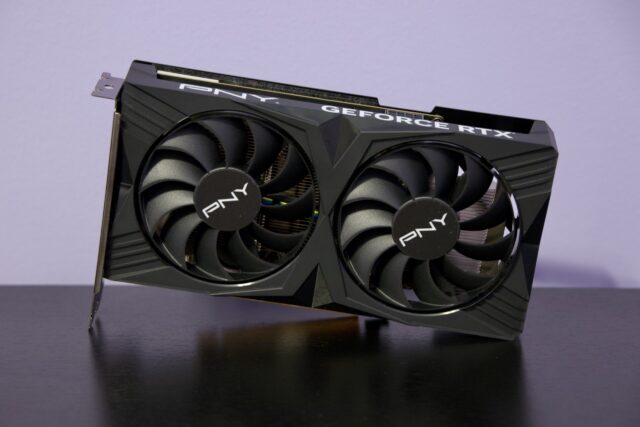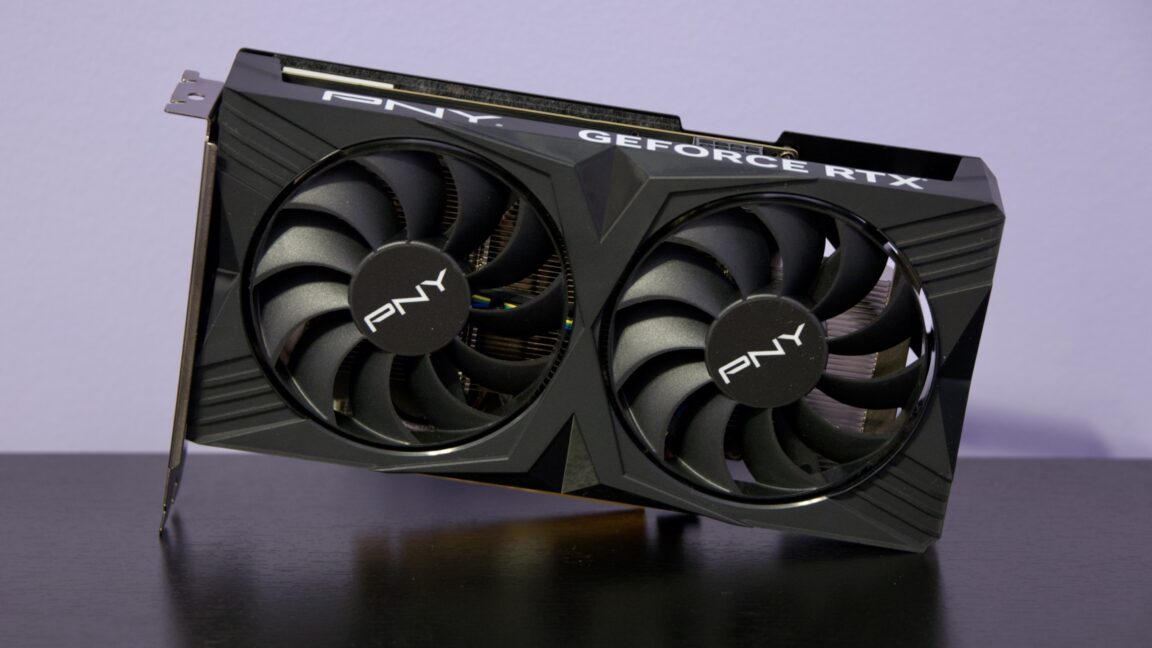Nvidia has launched all of the GeForce RTX 50-series GPUs that it announced at CES, at least technically—whether you're buying from Nvidia, AMD, or Intel, it's nearly impossible to find any of these new cards at their advertised prices right now.
But hope springs eternal, and newly leaked specs for GeForce RTX 5060 and 5050-series cards suggest that Nvidia may be announcing these lower-end cards soon. These kinds of cards are rarely exciting, but Steam Hardware Survey data shows that these xx60 and xx50 cards are what the overwhelming majority of PC gamers are putting in their systems.
The specs, posted by a reliable leaker named Kopite and reported by Tom's Hardware and others, suggest a refresh that's in line with what Nvidia has done with most of the 50-series so far. Along with a move to the next-generation Blackwell architecture, the 5060 GPUs each come with a small increase to the number of CUDA cores, a jump from GDDR6 to GDDR7, and an increase in power consumption, but no changes to the amount of memory or the width of the memory bus. The 8GB versions, in particular, will probably continue to be marketed primarily as 1080p cards.
| RTX 5060 Ti (leaked) | RTX 4060 Ti | RTX 5060 (leaked) | RTX 4060 | RTX 5050 (leaked) | RTX 3050 | |
|---|---|---|---|---|---|---|
| CUDA Cores | 4,608 | 4,352 | 3,840 | 3,072 | 2,560 | 2,560 |
| Boost Clock | Unknown | 2,535 MHz | Unknown | 2,460 MHz | Unknown | 1,777 MHz |
| Memory Bus Width | 128-bit | 128-bit | 128-bit | 128-bit | 128-bit | 128-bit |
| Memory bandwidth | Unknown | 288 GB/s | Unknown | 272 GB/s | Unknown | 224 GB/s |
| Memory size | 8GB or 16GB GDDR7 | 8GB or 16GB GDDR6 | 8GB GDDR7 | 8GB GDDR6 | 8GB GDDR6 | 8GB GDDR6 |
| TGP | 180 W | 160 W | 150 W | 115 W | 130 W | 130 W |
As with the 4060 Ti, the 5060 Ti is said to come in two versions, one with 8GB of RAM and one with 16GB. One of the 4060 Ti's problems was that its relatively narrow 128-bit memory bus limited its performance at 1440p and 4K resolutions even with 16GB of RAM—the bandwidth increase from GDDR7 could help with this, but we'll need to test to see for sure.



 Loading comments...
Loading comments...
